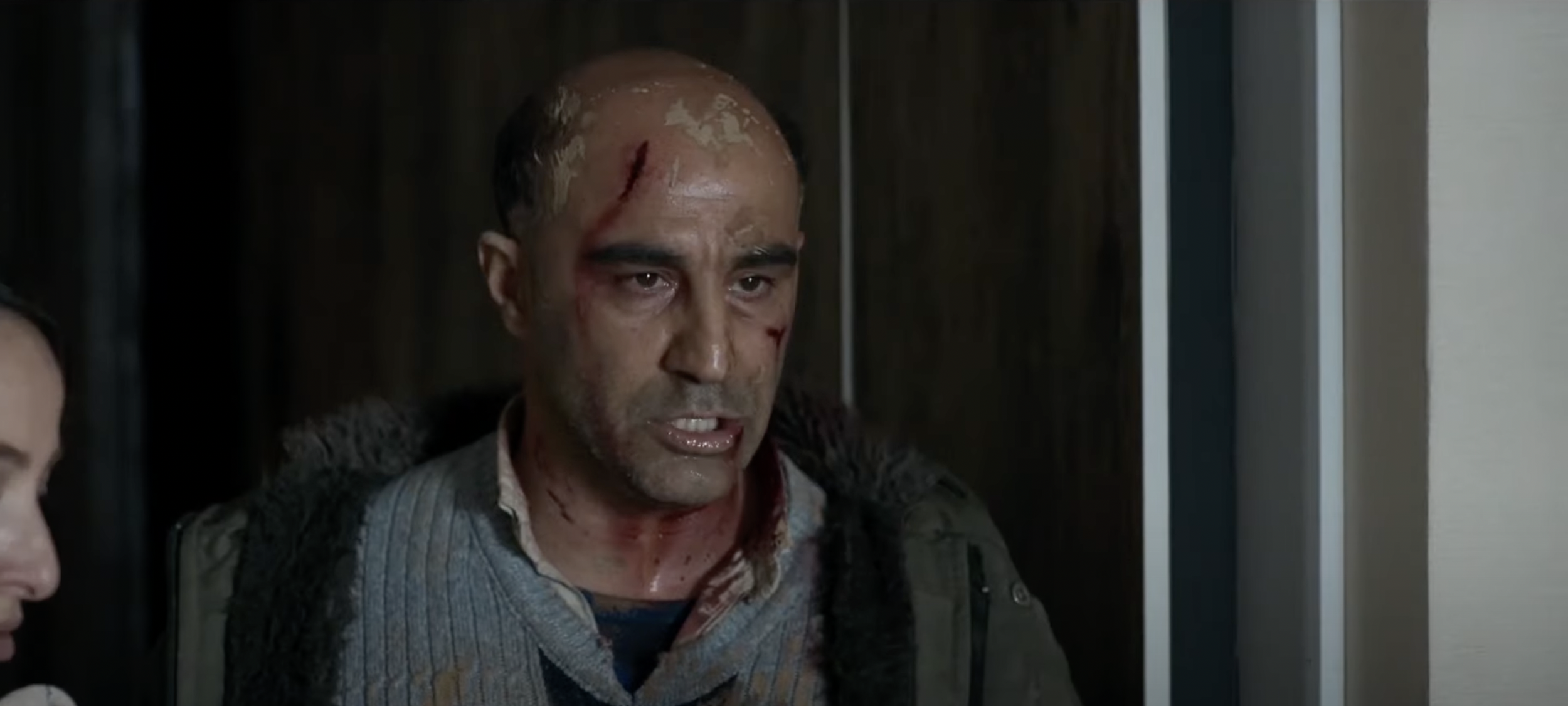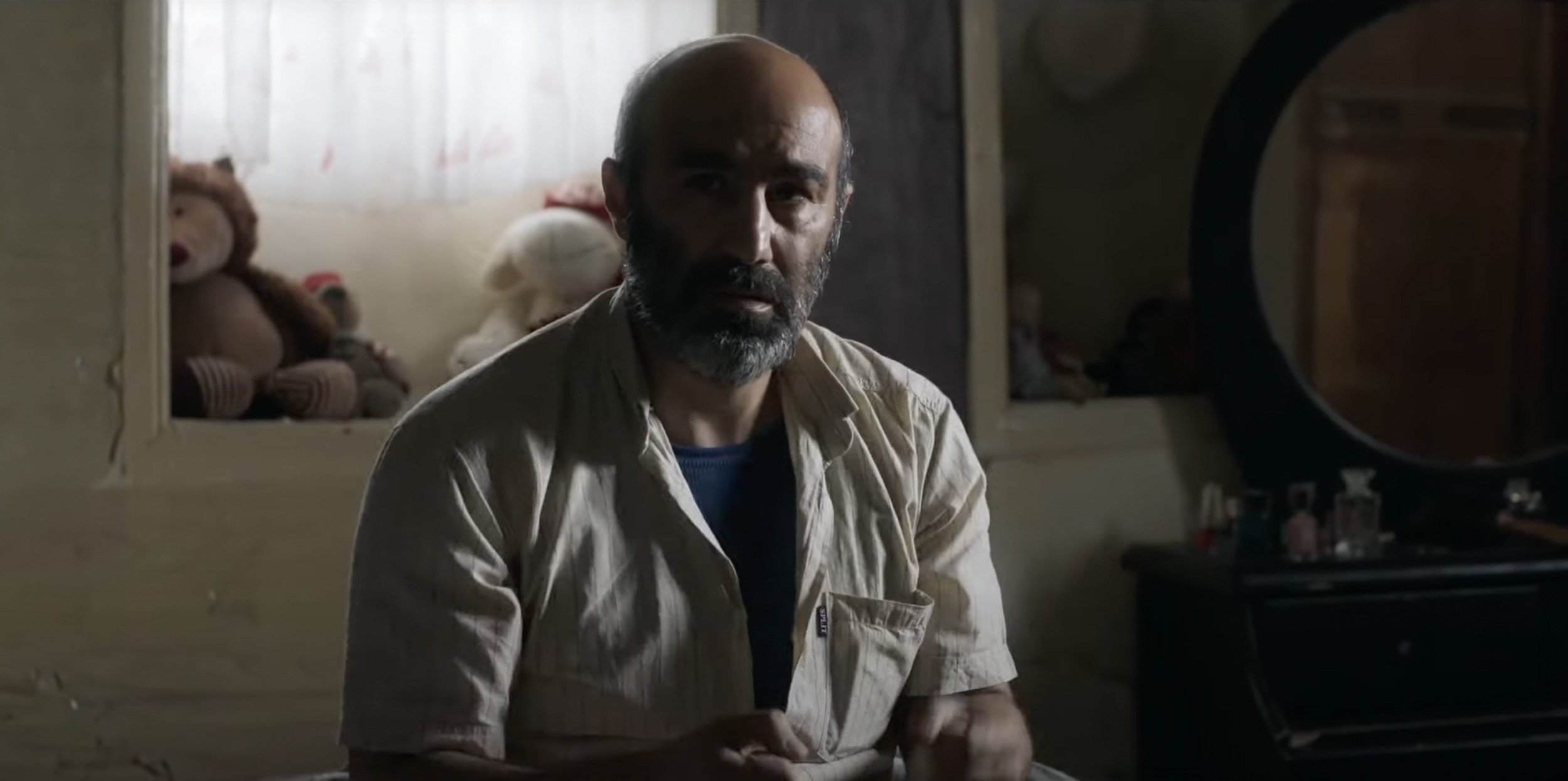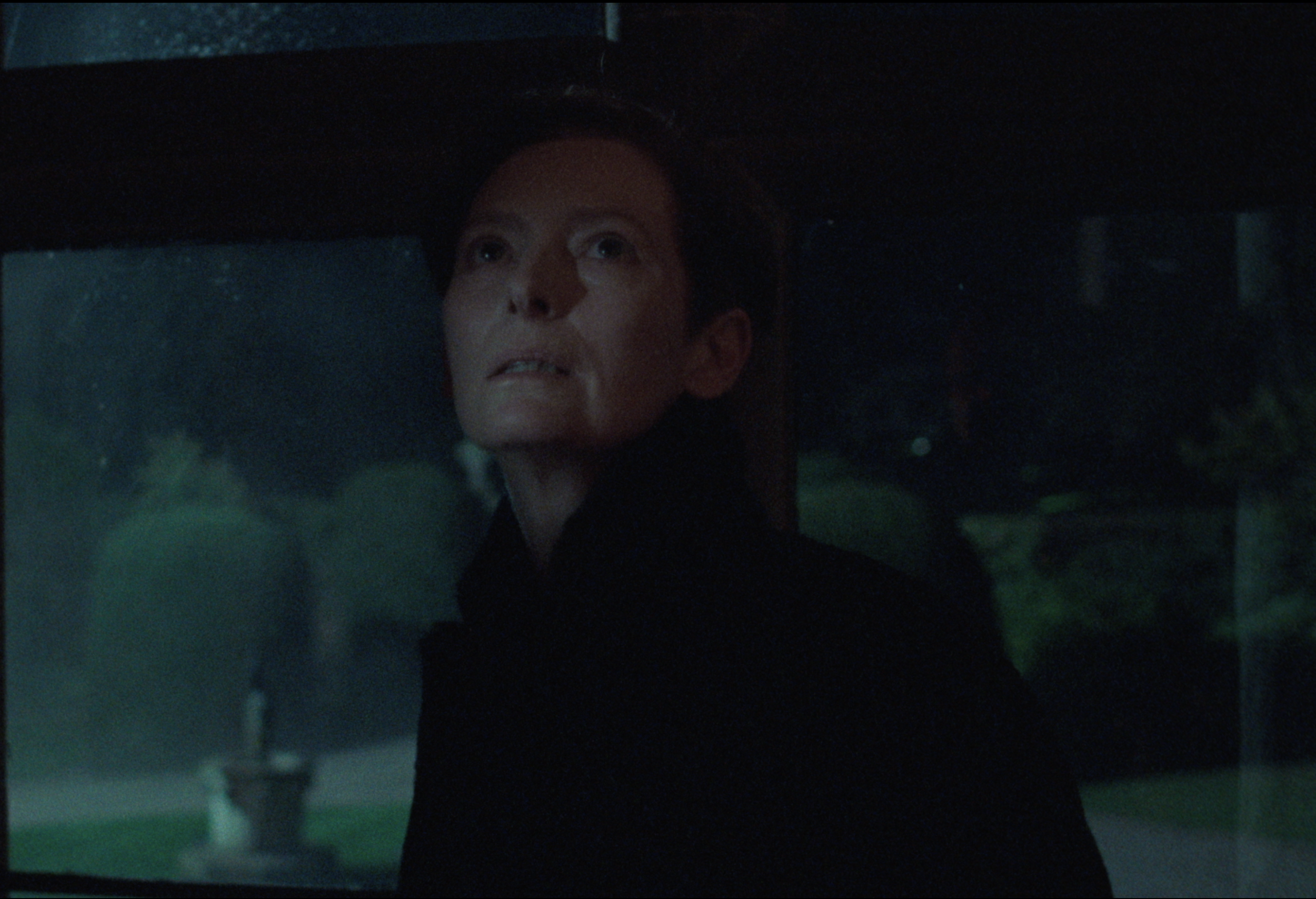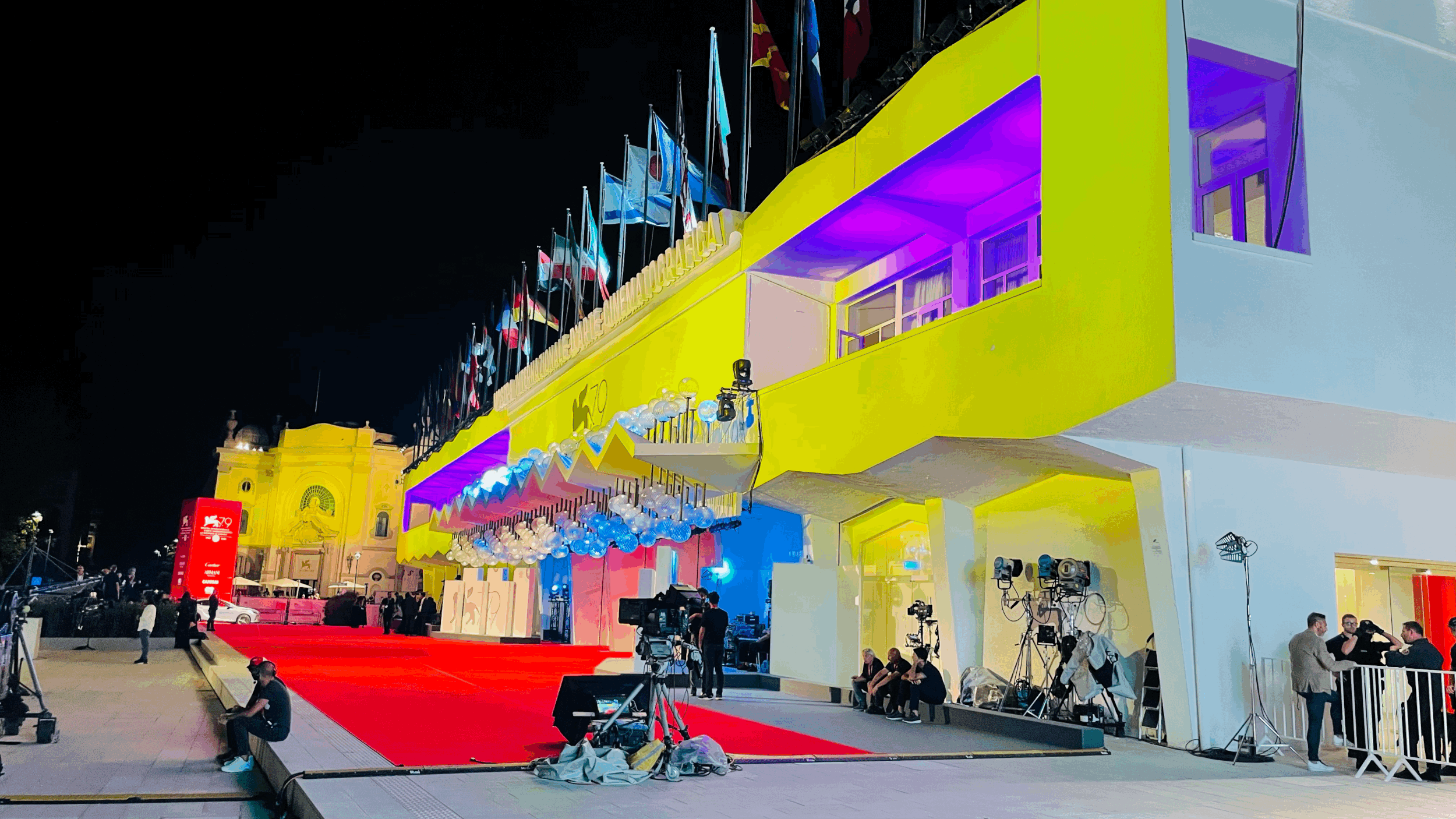Jang-e jahani sevom - World War III Directed by Houman Seyyedi
Jang-e jahani sevom - World War III
Directed by Houman Seyyedi
Starrings: Mohsen Tanabandeh, Mahsa Hejazi, Neda Jebraeili, Navid Nosrati
Country: Iran
Year 2022
Author Review: Roberto Matteucci
Click Here for Italian Version
“I have nothing more to lose.”
World War II ended in Europe on 7 May 1945, with Germany's surrender. A week earlier, Hitler had committed suicide. In Asia, it will be necessary to wait for a few months. On 2 September 1945, Japan also capitulated.
The cessation of the conflict did not mean the pacification of the world. The Third World War was many times close: the war in Korea in 1950, the Suez Canal crisis in 1956, the Soviet missiles emergency in Cuba in 1962, the gunshots fired at Ronald Reagan in 1981. Then, the radars reported many false missile launches, with relative declarations of maximum alert.
After 1945, wars have continued, in a limited area, but extremely bloody. Pope Francis recalled how the Third World War is already underway and is being fought in pieces:
"For some time we can say that the world has been at war, piece by piece. It is perhaps not as organic, but it is organized and it is war." (1)
The pieces of war are many, with different intensities, while peace is the exception.
What does the Third World War have to do with Shakib's misfortunes, an Iranian man fallen into disgrace and with a broken life? The director Houman Seyyedi narrates his story in the film Jang-e jahani sevom - World War III. Presented in the Orizzonti competition at the 79th Venice Film Festival. The film deservedly won the Orizzonti Award for Best Film and the Orizzonti Award for Best Actor to Mohsen Tanabandeh.
Shakib has lost everything. In the earthquake a few years earlier, his wife and children died. Left alone, he sleeps in the shop friend's back room and occasionally works day by day. He fights his loneliness by falling in love with Ladan, a mute prostitute.
Unexpectedly, his existence changes positively. He finds a job to build a historical film set in the Nazi Germany era. Shakib works hard, is always available. He is noticed by the production, which engages him until filming ends. Besides, he can stay at night in a damp basement in the set. Carpenters sometimes dress up and act as extras. The director surprisingly chooses Shakib to play Hitler. Now he has an acceptable contract and lives in the red house with a swastika made for the film.
Something goes wrong. Ladan escapes from the brothel and joins him in the red house. Shakib has to hide her.
Houman Seyyedi talks about war, dictators, death and family. For the filmmaker, there is a connection to the possible Third World War:
“Almost two years ago, still long before the war between Ukraine and Russia, I looked at the world around me and I noticed that it is almost inevitable that a new war will come, maybe a Third World War because I noticed that we are going in that direction. It is very important to reiterate and say that it is never enough to repeat all the crimes committed during the Second World War, perhaps it never highlights enough that the right path is only peace." (2)
The director has a rather superficial geopolitical and historical vision. Only in the two years before, did he understand that the world is on the brink of total war? Where did he live before? While, he is wise when talking about peace.
They took Shakib's soul away. His existence disappears and he retaliates angrily. Shakib was not respected. No one recognised his drama. Why did everyone throw themselves at him, turning him into a violent savage?
This is the real metaphor. Very current. Anyone who is attacked and mocked can react harshly, especially if the aggressors have been arrogant and warmongering for years.
On the other hand, Houman Seyyedi represents an universal event, not of a specific country but all nations:
“In film i tried really hard to not make this film be about any one country or multiple countries or region it's a very universal theme that I try to touch upon and we want to be able to strive for peace and make that be the solution to our problems but so it's an exploration of a universal theme of if you mentioned the pressure cooker of have that represent what people will do under a lot of pressure and their reaction might be out of control and beyond fixing. (3)
Shakib is the victim. When he is ruthlessly beaten up, his reaction is carnage.
Just the family can save our planet from devastation:
“When you talk about your wife, your home, and a child on the way, choices are automatic. It's not even a choice, it's what we all do every day. We need power for our homes, our families. Without family nothings matters, so the choice happens automatically. It's a crossroads just at the beginning, afterwards he chooses what he lives for.” (4)
Having a family changes perspectives, changes the focus on expectations. Giving up liquid selfishness is a prerequisite for starting a family. Life has evolved into wisdom and kindness towards loved ones.
Shakib has hope for his future. He wants a new family. His past is annihilated, his present is repulsive but his future with the beloved woman must be beautiful. Nevertheless, suddenly everything vanished. The director has this thought:
“... when life is always at the mercy of events, there is more chance of losing everything earned with so much effort throughout life.” (5)
In his allegorical function, Shakib is perfect. He appears weak, sad, fragile, suffering from a terrible experience. However, he is a docile and serious worker. He commits because love has improved his existence. His liberation arrives after meeting Ladan. He does not care if she is a whore. He falls in love and so, there is a global upheaval.
Shakib, for good reason, becomes destructive, perfidious, angry and particularly implacable.
To the wickedness of the entire cast, he rebels with heinous cruelty.
Shakib's depiction is based on his duplicity. Initially, he had a modest, shy attitude. Sitting waiting for employment in front of huge concrete pipes, or sitting on the truck, completely wet from the rain. The bus does not take off again and Shakib, along with the other passengers, has to push it. These types of sequences depict him tired, debilitated by his troubles.
His sensitivity amends with the breaking of his dream. The brawl against the whole troupe is shocking for brutality. However, discreet Shakib no longer has mercy.
There is empathy for Shakib. Even extreme violence is considered right.
The director has the merit of describing him as resigned but also optimistic, starting with the dialogue with the prostitute at the beginning. Medium-shot. A large room, with teddy bears, in chiaroscuro. Shakib expresses himself in sign language. The subjective is that of the girl off-screen. In Shakib's gaze, there is a decision to get out of poverty.
The plot twist will be merciless but clear. Shakib is at war and is even willing to use unconventional weapons to achieve his goal.
Is this the filmmaker's opinion? Will revenge cause World War III?
Houman Seyyedi's graphic style is dominated by soft colours, with clearly distinguishable red. The dynamism is given by the small shots, by the outstanding protagonist, Mohsen Tanabandeh.
The rhythm is fast, the plot is complex. As the film in film unfolds, two lines of expectations converge and find harmony.
The atmosphere is full of tension, an uncertain path as it erases every ethical element, annulling good and evil. For this reason, in some moments the film has a caricatured tone, as in the concentration camp scenes with a fake Hitler. Shakib plays him – in the costume, in the posture – like a funny puppet even when he shoots the prisoners.
And in the finale, Shakib gets in the game and causes, like Hitler, a total massacre.
Will World War III end in a massacre?
Sitography:
https://popcinema.org/film/la-troisieme-guerre-giovanni-aloi
https://www.agi.it/cronaca/news/2020-12-04/papa-francesco-terza-guerra-mondiale-10540085/
https://www.raiplay.it/video/2022/09/Venezia-79---TV-CALL---Jang-E-Jahani-Sevom-World-War-Iii---07092022-36770714-4674-4269-845f-79d7ad00c0d0.html Translated by author
https://www.raiplay.it/video/2022/09/Venezia-79---TV-CALL---Jang-E-Jahani-Sevom-World-War-Iii---07092022-36770714-4674-4269-845f-79d7ad00c0d0.html Translated by author





















A metaphorical comparison between Akira Kurosawa’s Ikiru and its remake Living by Oliver Hermanus, presented at the 79th Venice Film Festival.